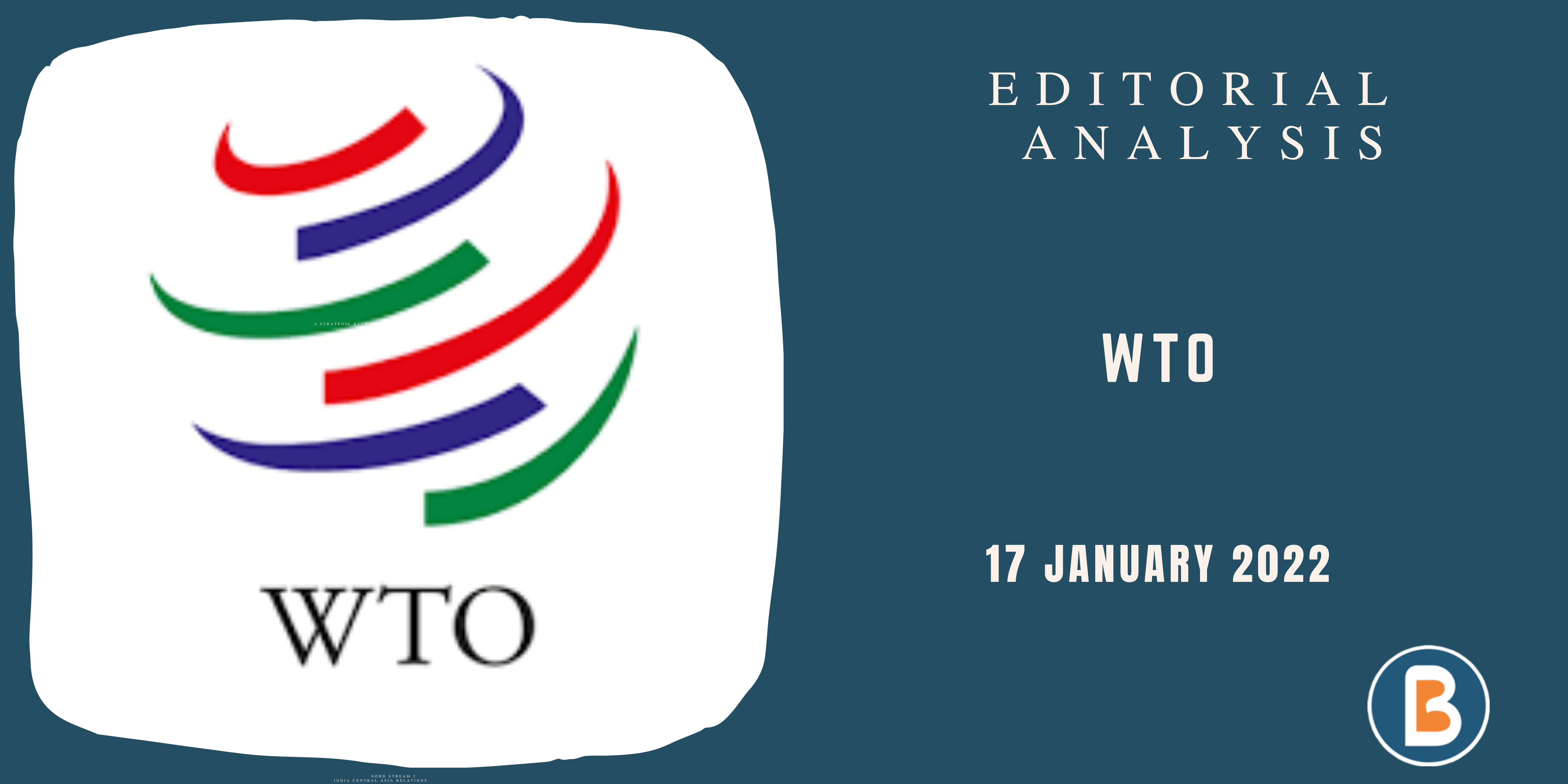WTO
Context:
- India this week filed an appeal with the Appellate Body of the World Trade Organization (WTO) disputing a verdict by the WTO’s dispute settlement panel last month on sugar subsidies.
- The WTO’s dispute settlement panel had ruled that India, by subsidising sugar producers, was breaking rules framed under the General Agreement on Tariffs and Trade (GATT) which govern international trade.
WTO’s Appellate Body
- The Appellate Body, set up in 1995, is a standing committee of seven members that presides over appeals against judgments passed in trade-related disputes brought by WTO members.
- Countries involved in a dispute over measures purported to break a WTO agreement or obligation can approach the Appellate Body if they feel the report of the panel set up to examine the issue needs to be reviewed on points of law.
- The Appellate Body has so far issued 152 reports. The reports, once adopted by the WTO’s dispute settlement body, are final and binding on the parties.
Issue:
- In 2019, Australia, Brazil, and Guatemala complained against India at the WTO arguing that subsidies offered by the Indian government to sugar producers were against the rules governing international trade.
- According to WTO rules, subsidies cannot exceed 10% of the total value of sugar production. These countries believe that subsidies offered by India have led to increased production of sugar and caused the price of sugar to drop significantly in the global market.
- After two years, the WTO ruled in December that India’s sugar policy was favouring domestic producers through subsidies to the detriment of foreign producers.
- The panel recommended that India withdraws its alleged prohibited subsidies under the Production Assistance, the Buffer Stock, and the Marketing and Transportation Schemes within 120 days from the adoption of this report.
- India has stated that the WTO’s dispute panel ruling has made certain “erroneous” findings about domestic schemes to support sugarcane producers and exports and the findings of the panel are completely “unacceptable” to it.
What is India’s stand?
- India has argued at the WTO that it does not offer direct subsidies to sugarcane farmers and thus doesn’t break any international trade rule.
- This argument, however, has not convinced other countries who point out that, among other things, the Centre and the State governments in India mandate the minimum price (the Fair and Remunerative Price, or FRP) at which sugar mills can buy sugarcane from farmers.
- In fact, in August last year, the Centre set the FRP at ₹290 per quintal and called it the “highest ever” FRP for sugarcane procurement. Individual States also set minimum procurement prices that may be higher than the Centre’s price to adjust for conditions at the local level.
- According to the Food Ministry, the country’s sugar production is likely to remain flat at 30.5 million tonnes in the next 2021-22 season as more sugarcane will be diverted for ethanol making.
- State governments and the Centre have also regularly intervened to reduce the debt burden on sugar mills. Earlier this month, the Centre decided to restructure loans worth over ₹3,000 crore offered to sugar mills by the Sugar Development Fund. Without such assistance, it may not be possible for sugar mills to procure sugarcane from farmers at the minimum prices dictated by the government.
- Further, the Centre also regularly sanctions funds to encourage sugar mills to export sugar depending on sugar prices in the global market.
- In the budget last year, the Centre allocated a total of ₹3,500 crore to fund the export of 6 million tonnes of sugar.
What’s ahead?
The WTO Appellate Body’s decision will be considered final on the dispute. In case India refuses to comply with the decision, it might have to face retaliatory action from other countries. This could be in the form of additional tariffs on Indian exports and other stringent measures. Incidentally, the appellate body of the WTO is not functioning because of differences among member countries to appoint members, and disputes are already pending with it. The U.S. had blocked the appointment of members.
Source: THE HINDU.




